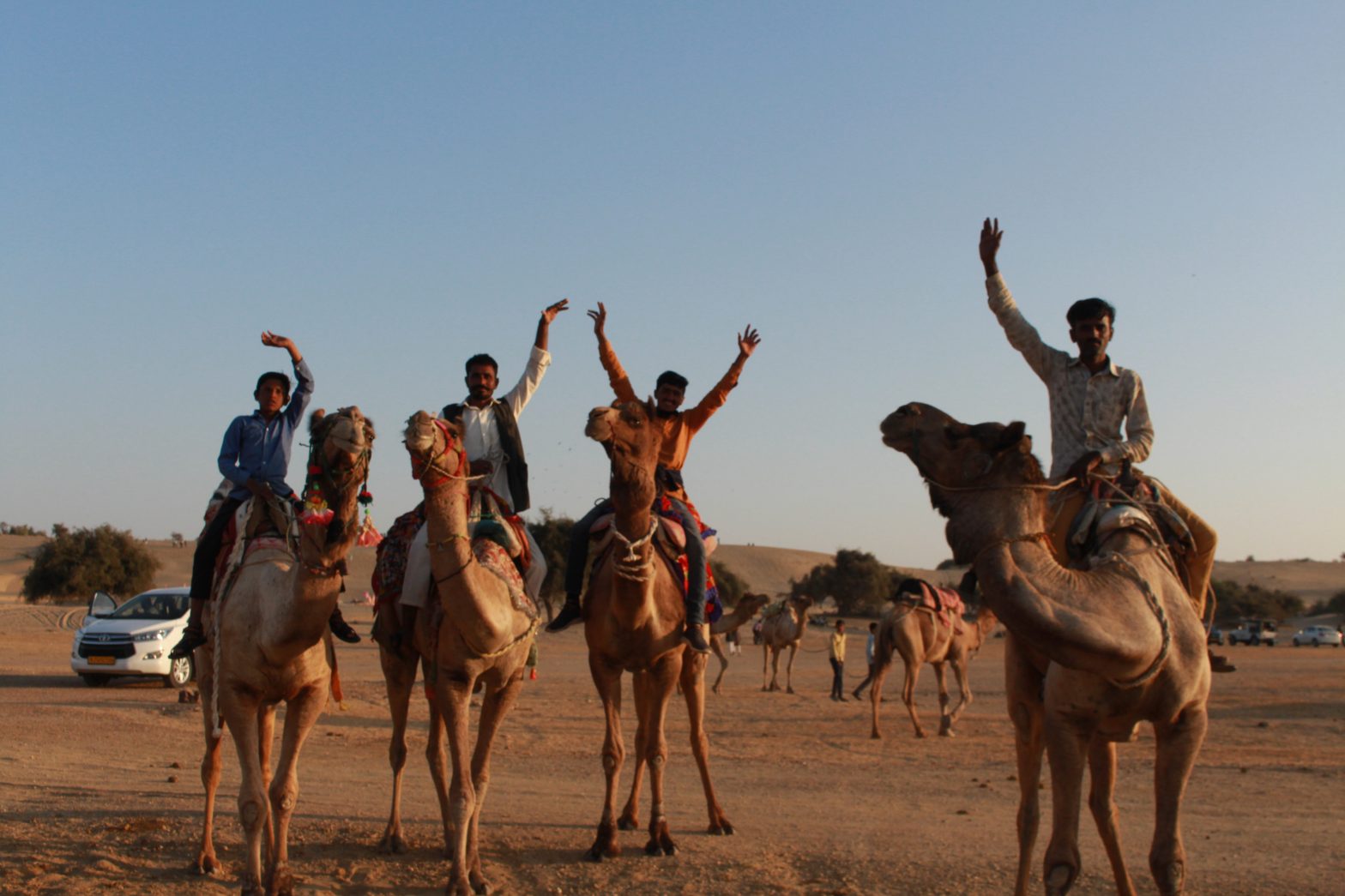
Add Jaisalmer’s desert festival to your bucket list
Good food, great music and frenzied camel racing pull crowds from across India to Rajasthan’s four-day desert festival.

Good food, great music and frenzied camel racing pull crowds from across India to Rajasthan’s four-day desert festival.
Ishwar, a 30-year-old camel herder, was happy to be participating in a four-day desert festival, Maru-Mahotsav, in Rajasthan’s Khoodi village — about 50 km away from the city of Jaisalmer.
The village was drenched in moonlight.
“This happens once a year. This time, it’s happening after the outbreak of the coronavirus. We are excited about it,” said Ishwar, happiness spread over his face like the Thar desert itself.
The tourists were also excited, as were the artists who were performing that night.
“We’re the children of the desert. Our sand is our velvet,” said Amar Singh, another participant of the festival that was held during the first week of February. “Those coming from outside would hardly know what life is like here. We want them to know that the desert is not a dead land.”

Festival attendees sat in a big semi-circle in the middle of Thar, witnessing artists perform on padharo mhare des, among other folk numbers.
Also Read | Festivals in India: What’s behind the masks in Leh’s Hemis Festival?
From stargazing atop the dunes, to camel-racing below, the festival was a treat for the eyes – free of cost.
We’re the children of the desert. Our sand is our velvet
To enrich the experience, the villagers hosted a lunch for tourists in their homes. They prepared traditional dishes using locally sourced ingredients, offering them a first-hand experience of desert cuisine.
The culinary experience was an initiative of ‘I Love Jaisalmer’ called Dine with Jaisalmer. As many as 22 local families including two women from the city’s fort hosted lunch, serving over 200 tourists a delectable spread of delicacies such as Dal Baati Choorma, Kadi, Kair-Sangri and Gatte ki Sabzi.
“Not only do we want the tourists to enjoy the food, we want them to listen to the stories of the locals,” said Shaheen Hasan, Project Manager, I Love Jaisalmer.

On the agenda of the festival was also horse and camel racing that was organised about 20 kms away from the city, at Lanela ground.
Also Read | Sohrai: A tribal festival celebrating cattles and nature
Unfortunately, the administration had to cancel the evening live shows which were to be held in Sam and Khoohdi, two tourist destinations away from Jaisalmer.
Both these areas come under the Desert National Park protected land, and hosting live shows here would have disturbed the flora and fauna. The programmes, however, were held in the city.
The main attraction saved for the last evening of the festival was a conglomerate of three singers from Indian Idol – Ankit Tiwari, Salman Ali and Sanmukh Priya, who performed their latest songs in the famous Punam Singh stadium.
Not only do we want the tourists to enjoy the food, we want them to listen to the stories of the locals,
Tourists also grooved to the tunes of about a 100 local artists.
“We’re certainly getting support. The district collector seems concerned. However, an artist only gets 1000 rupees for the performance,” lamented Bax Khan of Gunsar Folk Music Institute Jaisalmer.
There is a resistance to rely on the allure of Bollywood singers as the main headline entertainers.
“If Bollywood singers are called, the idea of folk music gets dusty. It would be better if folk artists are called. That way, survival and revival of folk music shall continue,” said Amar.
Also Read | Universal Brotherhood: Baul festival of mystic minstrels enchants Bengal village
Naturally the local folk artists agree and are happy that the local government promises to step in and help make the event more focused on folk art.
“I must admit that the folk artists had some concerns and we will address them,” said Krishan Kumar, Assistant Director, Department of Tourism, Jaisalmer.
The lead image at the top shows camel herders are thrilled that the desert-festival is back after a two-year long COVID-19 break (Photo by Amir Malik)
Amir Malik is a freelance journalist based in Bihar. He writes about health, women and children and their interaction with nature. He is a Rural Media Fellow 2022 at Youth Hub, Village Square.